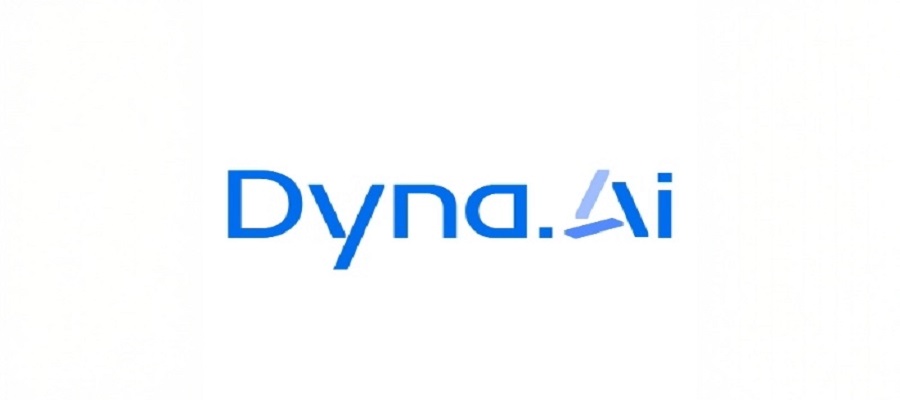E-Business
How Virtualization Can Reduce Organisation’s Energy Costs

Virtualization can enable cost savings for organizations in multiple ways. This article explores those instances and points out how the overall power savings from virtualization can boost the environmental credentials of the private and public institutions that adopt it.

Each year, organizations devote a substantial amount of their budget to providing power for their operations. Energy costs are on the rise, and so is its consumption. With companies and public agencies running on an increasing number of devices, costs are expected to trend upward still.
The Nigerian context brings an extra dimension to the situation with energy costs in the country. For most businesses, power from the public grid isn’t enough. They often have to augment it with expensive alternatives. One estimate puts the total annual spend on power by businesses at ₦5 trillion.
Given this situation, it’s easy to see why businesses are on the lookout for legitimate ways to cut their power costs. Virtualization technology provides them with an effective way to do just that.
What Is Virtualization?
Virtualization refers to the creation of a virtual version of an actual thing, including Operating Systems, servers, storage devices, and other computer platforms and network resources.
The virtual versions sit atop the actual component and run just like them. Virtualization is done by deploying software that divides the physical resource into multiple virtual instances.
Here’s an example. Given a single physical server, multiple virtual servers could be created to run atop that server, and work just like it. Each of those virtual servers will perform the same functions that a single physical server would.
The same sort of thing happens with virtual Operating Systems. If you have virtualization software on your computer, you could create multiple Operating Systems—called Virtual Machines –that would run alongside the single Operating System that the computer previously had.
This ability to run several instances of a single component is at the core of the cost savings that virtualization can guarantee.
In the following sections, we explore some of the ways by which virtualization achieves lower costs for the organizations that adopt it.
Virtualization and Server Consolidation
Datacenters consume a lot of electricity. One widely cited report from 2018 (contained in the journal Science) suggests that they take up about 205 terawatt-hours of electricity annually—that’s about 1% of electricity consumed worldwide each year.
It follows that thanks to the energy costs associated with them, datacenters cost a lot to maintain.
A greater part of that expense–40% in one report–comes from running servers. Considering that many servers only have a single application running on them per time, it’s clear that a lot of spending is going into keeping those applications up. It also means that these servers are sitting idle most of the time, adding even more expense for little or no workloads.
With virtualization, these costs can be cut significantly. Virtualization enables the consolidation of the number of servers in a data center, enabling businesses to run several applications and Operating System workloads on a single server. In many cases, a company could have ten workloads running on one server; but it’s possible to have several times that number on one server.
This consolidation translates to a reduction in the number of servers needed, and a substantial increase in the utilization of server capacity. Capacity use could increase from about 15% (which is typical) to as much as 80%. Energy savings may increase by up to 80%, and energy costs are cut by a significant amount.
Scalability and Tailoring Resources to Current Needs
Energy costs can increase or decrease depending on the demand placed on the resources that consume power. These variations may occur over short periods, such as hours within a day. They could also be longer-term, such as the growth of a company.
If an organization experiences any of these instances, it may have to spend a lot on acquiring new capabilities. Its response in any of these cases may also be slowed down due to hardware handling issues and associated costs.
Virtualization can enable organizations to scale resources quickly and meet growing demand. Whether the demand on resources fluctuates over a short period, or resources have to be matched to company growth, creating virtual versions of those resources can take care of those needs.
Often, businesses may maintain ‘excess capacity’ just so they can utilize that capacity when the occasion calls for it. This happens when they are principally dependent on hardware or other actual components, and less on virtual versions of them. With virtualization, they can power on or power off capacity, and save the cost of dormant resources.
Virtualization’s Impact on the Environment
By reducing the amount of energy that has to be consumed per device, virtualization shrinks the potential impact that their use could have on the environment.
By one estimate, each server that is virtualized saves 7,000kWh of electricity and four tons of carbon dioxide emission per year. It cuts down the amount of space that’s required in a data center, thus reducing both the cost of managing it and its possible impact on the environment.
Another way in which virtualization helps mitigate the environmental impact of technology is its cutting down on hardware that needs to be decommissioned at the end of its lifespan. Electronic waste is known to be a major environmental hazard, and the failure to properly dispose of them could mean that they become a physical pollutant. If companies opt for virtualization instead of acquiring new hardware, they could drive down the number of hardware that will eventually be decommissioned.
Layer3 Provides You with the Benefits of Virtualization
If you would like to enjoy the many benefits of virtualization, you can do so with the virtualization products available from Layer3.
Our solutions can help you reduce your hardware and operating costs by up to 50%, and cut down the time it takes to provision new servers by up to 70%. We also enable you to automate your virtual infrastructure, avoiding planned downtimes and eliminating repetitive configuration and maintenance tasks.
Let’s provide you with a virtualization solution that meets your needs. To get in touch with us, click here.
E-Business
NIMC Plans to Register 95 Percent Nigerians by December

Abisoye Coker-Odusote, director general, National Identity management commission (NIMC) has said that the commission is set to register 95 percent of Nigerians into the National Identity Database before December 2025.

Abisoye Coker-Odusote,, DG, NIMC
She made this statement at a press briefing to highlight the commissions goal aligns with President Bola Tinubu’s Renewed Hope Agenda, particularly on digital governance and inclusive development.
The mass enrollment drive will be powered by a combination of improved infrastructure, expanded registration centres, and robust public sensitization campaigns.
As of May 2025, NIMC reports over 120 million Nigerians have been enrolled, and about 100 million more would be captured by December.
E-Business
Farmers to Get Identity Card for Loans, Inputs

The federal government, in collaboration with the International Fund for Agricultural Development (IFAD), is building a digital registrar that will identify farmers, their farmlands, type of soil and the crops they grow for targeted services.

The information and the National Identification Number (NIN) will be integrated into a multipurpose identity card that farmers can use to access financial services, inputs and other forms of government assistance.
The digitisation is expected to harmonise farmers’ data across all the 36 states and the Federal Capital Territory.
Speaking at the national launch of the Policy Dialogue Initiative on the National Digital Farmers Registry (NDFR) recently in Abuja, Dr Marcus Ogunbiyi, permanent secretary, Federal Ministry of Agriculture and Food Security (FMAFS), said the new system would address the issue of portfolio farmers, whom he described as “farmers who have no farm.”
“We are going to register farmers and their farms. Not only that, farmers and the type of crop they grow, farmers and the locality they are, the type of soil they have on their farms. There is no farm that will not have a farmer. But there are many farmers who do not have farms. This is an encompassing package.
“When we register these farmers, we are going to provide a physical and digital card for them. With the card, many things can be done by the farmers. It can be used as a means of identification, an asset to some gateway – just anything. It is going to have a handshake with the database of the country, such that with that particular card, the farmer can enter any place and get things done. He or she can redeem inputs and even get a loan, depending on the financial entity,” Ogunbiyi explained.
He said that to accomplish this, the Federal Ministry of Agriculture and Food Security has taken decisive steps to transform their approach to farmer data management, adding, “Chief among these is our strategic partnership with the National Identity Management Commission (NIMC) to implement a far-reaching farmer registration and database project. At the heart of this initiative is the integration of the NIN, which ensures that every Nigerian farmer is uniquely identified and seamlessly integrated into a national agricultural system.”
Mrs Dede Ahoefa Ekoue, country director/representative of the IFAD in Nigeria, said the United Nations (UN) organisation was proud to be part of the initiative on the National Digital Farmer Registry in Nigeria.
“Our role is to convene all the partners, development partners from the public sector, private sector and the international community to put our resources together to support the effort of the government in establishing and enabling a digital farmer registry for the country,” she said.
Mrs Ekoue said that although there were previous efforts to have a national database of farmers, it had the issues of fragmentation and sustainability.
“The government is now providing us with a sense of direction and matching orders to all the actors to work together. This is what we are doing today with several partners, including the African Development Bank, FAO, the World Bank, the EU, the Islamic Development Bank and UK. Also, what is very key is farmers’ organisations because it is about them, it is for them, it must be with them,” she added.
The country director said the IFAD was happy to bring together the private sector and different ministries, departments and agencies, adding, “It will be a game changer for having a strong, updated and sustainable national digital farmer registry.”
Dr Lekan Tobe, the country director of Heifer International in Nigeria, in his remarks at the official launch of the Policy Dialogue Initiative on the National Digital Farmer Registry, emphasised the critical role of partnership and data in transforming Nigeria’s agricultural sector.
He said that this initiative, born from recommendations of previous policy dialogues organised in collaboration with the federal government, aimed to scale up innovative digital technology to enhance food systems across the country.
E-Business
Dyna.Ai Launches Operations in Nigeria

Dyna.Ai, a global leader in AI-as-a-Service (AIaaS), has launched its operations in Nigeria with an exclusive closed-door ‘Nigeria Dyna Day’ event in Lagos, which saw the introduction and orientation of its suite of AI-powered products and solutions to Nigeria’s emerging financial ecosystem.

The event, tagged ‘Nigeria Dyna Day’ and themed “AI Unleashed: Revolutionising Nigeria’s Financial Future,” brought together leading voices from the country’s AI, financial, fintech, telecom, and other key sectors, including representatives from government agencies and major enterprises.
In his opening remarks, Tomas Skoumal, chairman and co-president of Dyna.Ai, emphasized the strategic importance of Nigeria and the broader African market, stating, “For us, it makes sense to start in Nigeria.
There is no bigger country in Africa—this is where the momentum is.” He noted that Africa is no longer just “the future,” but is actively transforming today, driven by rapid digitalization and fintech innovation.
“This is the perfect time to be here,” he added, highlighting that Dyna.Ai sees technology as a vital bridge to financial inclusion and long-term growth across the region.
Skoumal introduced Dyna.Ai’s advanced Agentic AI solutions, including its proprietary Agent Studio and industry-specific language models, designed to power intelligent automation across customer service, marketing, collections, HR and more.
He also underscored the company’s long-term ambition to invest in local talent, stating, “We’re not just here to sell a product—we’re here to build infrastructure, create local jobs, and scale innovation from Nigeria to the rest of Africa.”
Dyna.Ai also showcased its advanced AI technologies at the event, including AvatarGPT, an AI digital human delivering interactive experiences; VoiceGPT, a voice agent featuring authentic local accents for seamless communication in Yoruba, Hausa, and Igbo; along with live demonstrations showing how these innovations empower customer engagement and employee experience.
Delivering the keynote address at the event, Tokoni Peter Igoin, Special Assistant to the President on ICT Development and Digital Innovation, underscored the Federal Government’s vision for a secure and forward-thinking digital ecosystem.
“The government of the Federal Republic of Nigeria, under the visionary leadership of His Excellency, President Bola Ahmed Tinubu, is fully committed to responsible innovation. Our approach to AI and financial technology is rooted in a positive framework. It encourages creativity while ensuring transparency, data protection, and digital security”, he said
Also in his remarks, Olatunbosun Alake, Lagos State Commissioner of Innovation, Science and Technology, gave insights from the government/regulatory perspective.
He announced that the Lagos State government is also taking steps towards the wide adoption and regulation of artificial intelligence in the state with the planned release of the first AI guidelines for the deployment and management of AI in the coming weeks.

 E-Business2 days ago
E-Business2 days agoFarmers to Get Identity Card for Loans, Inputs

 Telecom2 days ago
Telecom2 days agoARCON Probes 9mobile over Alleged N1Bn Advertising Debt

 News2 days ago
News2 days agoSERAP Sues NNPC over Alleged Missing ₦500Bn, Seeks Accountability

 News2 days ago
News2 days agoFirst Asset Management Receives 2024 Fund Manager Award

 E-Business2 days ago
E-Business2 days agoDyna.Ai Launches Operations in Nigeria

 General News2 days ago
General News2 days agoNigeria Relaunches National Talent Export Programme to Unlock $1 Trillion Global Outsourcing Market

 Telecom2 days ago
Telecom2 days agoNiRA Holds 17th AGM, Elects New Leadership to Propel .ng Domain Growth

 General News2 days ago
General News2 days agoFG Plans Special Court for Exam Cheats

























